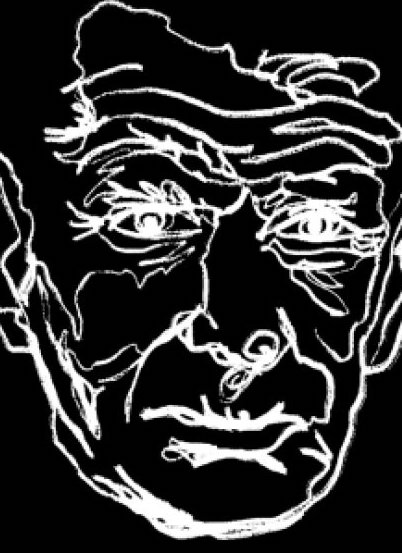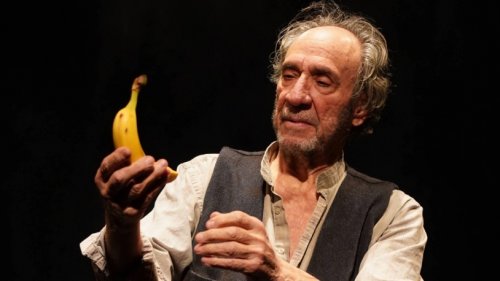
By: Darryl Reilly
F. Murray Abraham’s twinkling eyes and slight smile while tenderly caressing a banana, is a comic highlight of his magnetic turn in Krapp’s Last Tape. The mirth intensifies as he grandly peels the banana and then eats it; after rummaging around again through a desk drawer, he finds and consumes another banana. Earlier, he jangled keys and shuffled about while muttering with low-key flair; later he pops into an alcove to grab a liquor bottle and imbibes. Samuel Beckett’s 1958 modern classic is being performed with his Not I and Play; this exhilarating program is presented by the Irish Repertory Theatre as, Beckett Briefs: From the Cradle to the Grave.
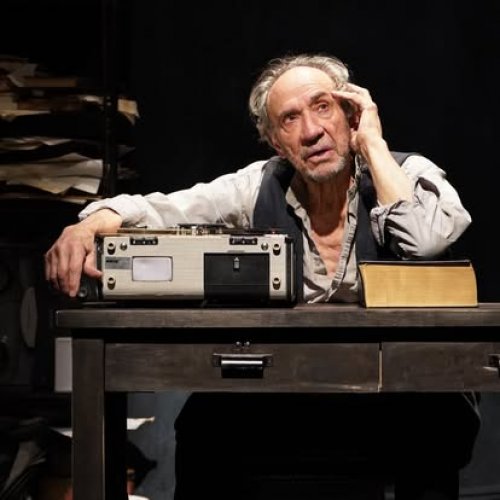
(Photo credit: Carol Rosegg)
“I was just listening to that stupid bastard I was 30 years ago” says Mr. Abraham in his expressive, melodious voice as the 69-year-old title character, a minor writer who has written a book which sold 17 copies, including library sales. Beckett’s poignant conceit is that Krapp spends his latest birthday listening to audio tapes he has made throughout his life. We hear eloquent, long-ago memories (beautifully recorded by Abraham) of his mother’s death, giving a dog a ball in a park, lost loves, and earthy reminiscences. The 85-year-old Oscar-winning Abraham has been a working actor for over 50 years. Here, he effortlessly dazzles with his limber physicality, glowing countenance and soulful presence. F. Murray Abraham’s majestic performance in Krapp’s Last Tape is a major event of the current New York theater season.
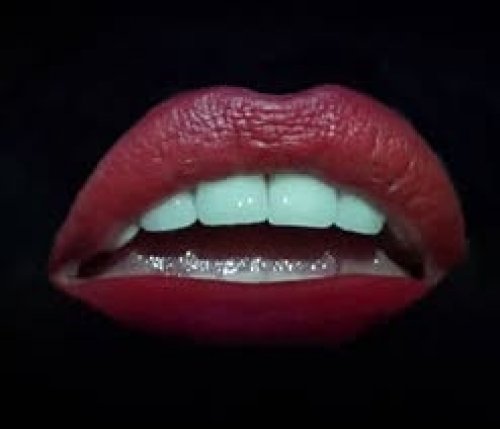
Sarah Street’s lips, teeth, tongue, and Irish cadences, are gloriously employed in Not I (1972). In an eerie, dark void, a piercing pinprick of light illuminates Ms. Street’s crimson-lip sticked and captivating mouth. Portraying a single, disaffected and aged woman, Street breathtakingly, at breakneck speed delivers a lifetime’s litany of heartbreaking disappointments and grievances during this bravura, stream of consciousness aria.

Street also zestfully appears in Play (1963), as Roger Dominic Casey’s unfaithful husband’s feisty paramour, Kate Forbes is his vitriolic wife. The beaming and sly Mr. Casey periodically, and marvelously hiccups during his down to earth declarations, which he states in his rich vocal tones. Ms. Forbes is delightfully haughty, volcanically spewing vulgarisms toward the other woman in her tangled menage. Play could be interpreted as Beckett’s jocularly theatrical spin on Jean-Paul Sartre’s 1944 existential landmark, No Exit; we discern that this combative trio are tormenting each other from beyond the grave for eternity. In swirling dimness, the actors are encased in life-sized urns with just their heads visible; a spotlight dizzyingly and continuingly shifts from each as as they vent.
Director Ciarán O’Reilly’s rapid-paced and artful staging fulfills Beckett’s visions through electrifying stagecraft. Scenic designer Charlie Corcoran’s contained set for Krapp’s Last Tape is a mesmerizing assemblage of vintage furnishings and key props, which conjure a quirky landscape. Mr. Corcoran’s urns for Play are equally as riveting. Michael Gottlieb’s dynamically varying lighting design transports the audience to an otherworldly dimension. Composer Ryan Rumery’s crashing original score, and the jolting effects are rendered by his and M. Florian Staab’s soaring sound design. Orla Long’s witty costume design is of musty yesteryear.
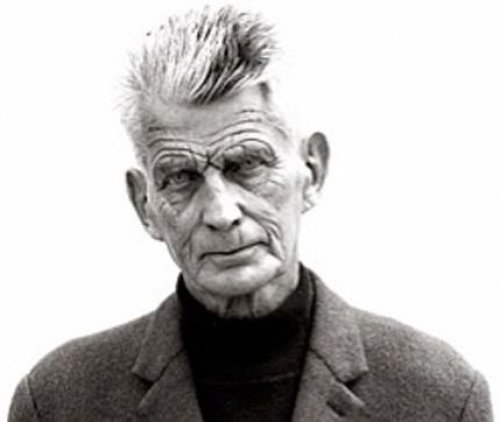
Beckett Briefs: From the Cradle to the Grave is a haunting experience, joyously depicting Beckett’s idiosyncratically expressed, aching and enduring theme of human existence. He smashed through the drawing room French doors of popular 1950’s theater, advancing the avant-garde and influencing generations of playwrights, beginning with Harold Pinter and Edward Albee. The committee which selected Beckett for the 1969 Nobel Prize in Literature declared that it was “for his writing, which – in new forms for the novel and drama – in the destitution of modern man acquires its elevation.”
Beckett Briefs (through March 16, 2025)
Irish Repertory Theatre
Francis J. Greenburger Mainstage, 132 West 22nd Street, in Manhattan
For tickets, visit www.irishrep.org
Running time: 75 minutes with no intermission
